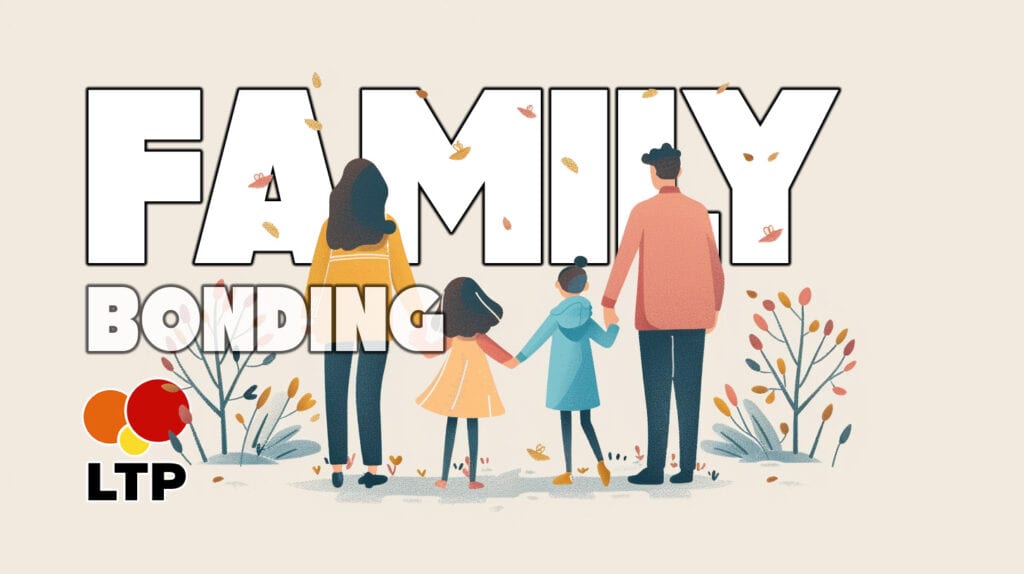
What does it take to create a happy family? Many families struggle with maintaining harmony and connection among the chaos of daily life. You’re not alone in facing these challenges, but the good news is that you can be the hero of your own family story.
In this article, we’ll walk you through 8 proven strategies, including open communication, quality time, balancing work and family life, and effective conflict resolution.
By following these steps, you’ll transform your family dynamic into one filled with love, respect, and lasting happiness.
Ready to get started? Keep reading to unlock the secrets to a joyful, thriving family life.
Here Are 8 Secrets of a Happy Family:
- Open Communication and Trust: Honest conversations and trust build strong, supportive relationships within the family.
- Spend Quality Time Together: Activities like family dinners and outings create meaningful connections and lasting memories.
- Balancing Work and Family Life: Managing work and personal life effectively keeps family time a priority.
- Respect and Understanding: Valuing each other’s perspectives fosters a positive and empathetic environment.
- Shared Family Values: Common values guide decision-making and strengthen family unity.
- Conflict Resolution Techniques: Constructively addressing disagreements maintains harmony and prevents escalation.
- Creating Family Traditions: Regular traditions, such as game nights, reinforce family bonds.
- Strong Support Systems: Emotional and practical support enhances a sense of security and belonging.
See also Top 10 Responsibilities of a Father: Core Duties for a Dad
1. Open Communication and Trust
Open communication and trust are foundational to creating a happy family. When family members openly share their thoughts and feelings, it helps a sense of understanding and connection, reducing the stress felt within the household.
Family bonding activities, like sharing stories during dinner time, help build trust and strengthen the importance of family bonding. Happy families prioritize these moments, understanding that trust and communication are vital for a supportive environment.
Following your family’s history and practicing self-care also contribute to a harmonious home. Regular communication, coupled with trust, ensures that every family member feels valued and heard, forming the bedrock of a happy family dynamic.
Here are 10 tips to build open communication and trust within a family:
- Model Trustworthy Behavior: Demonstrate the importance of integrity and honesty through your own actions.
- Schedule Regular Family Meetings: Create a safe space for everyone to share thoughts and concerns openly.
- Practice Active Listening: Give full attention when family members speak, showing that their opinions are valued.
- Encourage Honest Conversations: Foster an environment where honesty is appreciated, even if the truth is difficult.
- Share Family Stories: Discuss family history to build a sense of identity and understanding among members.
- Set Aside Quality Time: Regularly engage in family bonding activities, such as dinners or game nights, to strengthen connections.
- Respect Each Other’s Privacy: Trust grows when personal boundaries are acknowledged and respected.
- Be Consistent with Promises: Reliability and following through on commitments reinforce trust.
- Address Conflicts Calmly: Resolve disagreements with open dialogue rather than letting them fester.
- Celebrate Achievements Together: Acknowledge each family member’s successes to build mutual respect and trust.
2. Spend Quality Time Together

Spending quality time together is one of the most important secrets to building a happy family. Prioritizing dinner time allows family members to connect, share their feelings, and teach children the importance of family bonding.
As Rabbi Shmuley Boteach emphasizes, a happy family is built on strong relationships where everyone feels respected. Engaging in activities that strengthen family ties helps reduce the stress felt in daily life and enhances the overall well-being of all family members.
Creating a family history by spending meaningful moments together enriches family lives. Incorporating more helpful tips and making time for each other will help solidify these bonds and create a strong foundation for a happy, loving home.
Here are 10 examples of spending quality time together:
- Family Dinners: Enjoy meals together without distractions.
- Game Nights: Play board or video games as a family.
- Outdoor Activities: Go hiking, biking, or picnic together.
- Movie Nights: Watch films or TV shows as a group.
- Cooking Together: Prepare meals as a team.
- Reading Together: Share and discuss books.
- Weekend Outings: Visit museums or parks.
- Craft Projects: Work on creative activities together.
- Volunteering: Participate in community service.
- Family Meetings: Discuss plans and achievements regularly.
3. Balancing Work and Family Life
Spending quality time together is essential for a happy family, especially in today’s fast-paced world. Balancing work and career demands with family life requires intentional life planning and prioritization.
By setting aside dedicated time for family activities, such as meals, outings, or simply engaging in meaningful conversations, families can strengthen their bonds and create lasting memories.
This focused time allows family members to connect, share experiences, and support each other, contributing to a more fulfilling and harmonious family life. Prioritizing these moments helps emotional well-being and reinforces the importance of maintaining a healthy work-life balance.
4. Respect and Understanding

Respect and understanding are vital to the secrets of a happy family. Many families find that practicing patience and empathy helps strengthen family bonds. For young adults and kids alike, showing respect and understanding can significantly enhance life satisfaction and reduce conflicts.
Family bonding quotes often highlight the importance of mutual respect in creating a great family environment. Engaging in shared rituals and activities helps reinforce these values.
In families facing challenges, such as substance abuse, maintaining respect and understanding becomes even more crucial. By actively practicing these principles, families build a supportive environment that contributes to long-lasting happiness and cohesion.
Here are 10 tips for having respect and understanding in families:
- Celebrate Diversity: Value different personalities and viewpoints.
- Practice Active Listening: Give full attention during conversations.
- Offer Constructive Feedback: Be supportive and not critical.
- Respect Personal Space: Honor each member’s need for privacy.
- Mind Non-Verbal Cues: Observe body language and signals.
- Encourage Open Communication: Make it easy to share thoughts.
- Acknowledge Efforts: Recognize each other’s contributions.
- Practice Forgiveness: Resolve conflicts and move on.
- Support Goals: Show interest in each other’s aspirations.
- Be Consistent: Apply rules fairly and consistently.
5. Shared Family Values

Shared family values form the cornerstone of a happy family dynamic. These values often manifest through family rituals and traditions, which help to reinforce the unit’s core beliefs and practices. Engaging in regular activities, like Saturday morning routines or bike riding, helps a sense of unity and continuity.
Family stories and family songs can serve as powerful tools to communicate values and strengthen bonds. At the dinner table, families can address tough subjects, providing an opportunity to swap stories and support each other.
Many parents find that incorporating quotes about values and setting aside time for family rituals helps to instill a strong sense of identity and belonging in their children. By consistently sharing and practicing these values, families create a supportive environment that nurtures happiness and resilience.
6. Conflict Resolution Techniques
Conflict resolution is crucial for maintaining happy families. Effective techniques include open communication and active listening, which help bring family members closer and help harmony.
Using Family Values Books can provide insights into improving family relationships and understanding family history. Establishing family rituals and consistent routines supports emotional bonds and helps resolve disputes.
Encouraging sibling harmony and addressing conflicts calmly and respectfully contribute to a happier family environment. These methods nurture a supportive atmosphere where each family member feels valued and heard.
Here are 8 effective conflict resolution techniques for families:
- Positive Reinforcement: Acknowledge and appreciate each family member’s efforts in resolving conflicts, reinforcing positive behavior and cooperation.
- Problem-Solving: Work together to identify the root cause of the conflict and brainstorm possible solutions that satisfy everyone involved.
- Time-Outs: Take a break from the conversation if emotions run high, allowing everyone to cool down before continuing the discussion.
- Use “I” Statements: Express feelings and needs using “I” statements (e.g., “I feel…”), which reduces blame and defensiveness.
- Set Boundaries: Establish and respect personal boundaries to prevent conflicts from escalating and ensure a respectful interaction.
- Compromise: Find a middle ground where all parties make concessions to reach an agreement that is acceptable to everyone.
- Seek Mediation: Involve a neutral third party, such as a counselor or mediator, to help facilitate the resolution of more complex conflicts.
- Agree to Disagree: Recognize that some disagreements may not be fully resolved and agree to respect differing opinions.
7. Creating Family Traditions
Creating family traditions can profoundly impact family dynamics and contribute to a happy family life. By establishing rituals and routines, families can feel hopeful and connected.
These traditions, whether simple or elaborate, help a sense of belonging and help strengthen family relationships. Spending quality time together, sharing stories, and engaging in family rituals matter because they create lasting memories and bring family members closer.
Excellent research shows that such traditions positively influence wellness and promote a sense of stability, particularly for children. Parents and kids alike benefit from these practices, which offer a structured way to enjoy each other’s company and build stronger bonds.
Here are 10 family tradition ideas:
- Personalized Traditions: Develop unique traditions that fit your family’s interests such as craft project.
- Family Recipe Book: Compile favorite recipes into a keepsake book.
- Talent Show: Regularly host a show for family members to showcase their skills.
- Home Projects: Work together on DIY projects or home improvements.
- Seasonal Outings: Plan family activities based on the season.
- Holiday Rituals: Create unique traditions for celebrating holidays.
- Movie/Game Night: Set aside a night for family movies or games.
- Storytelling: Share personal or family stories regularly.
- Cultural Practices: Include cultural rituals in your routine.
- Seasonal Activities: Engage in seasonal activities like baking or pumpkin carving.
8. Strong Support Systems

Strong support systems are crucial for having a happy family environment. Family rituals matter greatly; traditions like weekly pizza nights or telling family stories can strengthen bonds and increase life satisfaction.
Helpful tips include practicing patience and ensuring all family members feel respected, which encourages positive interactions. Research-backed posts emphasize the importance of bringing family members close and addressing tough subjects with understanding.
Involving kids in these practices helps build sibling harmony and a sense of belonging. Regularly updating family rituals or creating new ones, like a free weekly update or a dedicated family activity, can maintain engagement and keep everyone connected.
A strong support system nurtures a great family dynamic, making each member feel valued and supported.
See also Stay at Home Mom Responsibilities: 8 Duties and Essential Tips
What Are the Secrets of a Happy Family? A Recap
To uncover the secrets of a happy family, it’s essential to focus on having a supportive and engaging family life. Parents play a crucial role as role models, guiding their children through responsibilities and personal growth.
Activities like family dinners and singing a family song contribute to life satisfaction and strengthen the family unit.
Research from experts like Bruce Feiler and Syracuse University highlights that happy families often fight smarter, using strategies proven to enhance harmony.
Incorporating enjoyable activities into the family routine, such as shared experiences and school events, promotes unity and reduces stress. Excellent research shows that prioritizing these elements can transform family dynamics, leading to happier and more fulfilling relationships for everyone involved.


